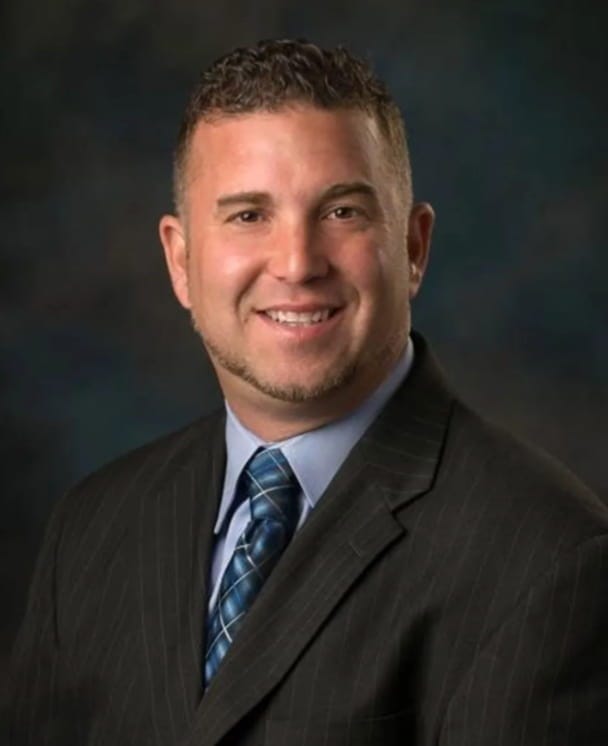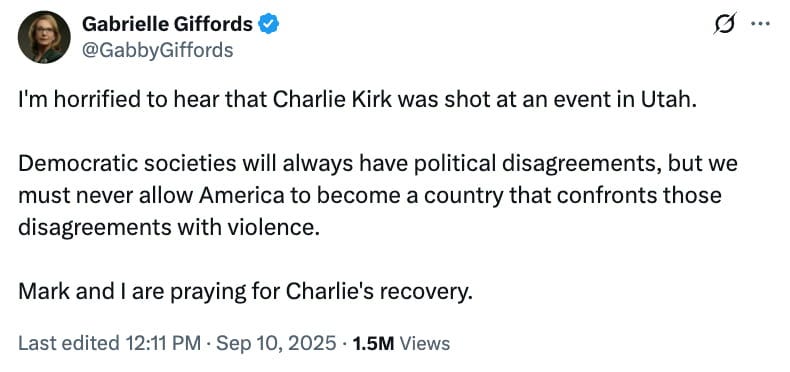Opening Pandora’s Box
It's political group therapy … Should have just paid the ticket … And send us your political spam.
The first step is admitting there is a problem.
When members of the Tucson City Council sat down on Tuesday to discuss how they can better communicate with their colleagues at the Pima County Board of Supervisors, it only highlighted the tensions that have been simmering behind the scenes.
The item up for debate was the idea of holding a joint session between the supervisors and councilmembers that would allow them to get on the same page about regional problems like homelessness.
But the longstanding beefs between the two bodies won’t be healed easily, Councilman Paul Cunningham told his colleagues.
“We can have a sit-down about homelessness, but we probably need like group therapy,” he said. “I’m serious, man, we do not have a good relationship.”
Cunningham was quick to note that the supervisors and county employees are good people who have the best interests of their community at heart.
But given the structural friction between the two governing bodies, there is and always has been some amount of animosity between city and county officials.
“We try to have synergy and be friendly — and we try, but it’s been going on for 30 years,” Cunningham said.
Although it isn’t always obvious, Pima County and the City of Tucson have an unspoken division of some services to govern the greater Tucson area. The dividing lines aren’t always clear, and each body feels blamed for issues that are technically the other body’s to solve.
Cunningham argued that a future joint meeting to discuss unsheltered homelessness and the fentanyl crisis would be akin to opening Pandora’s Box, saying the discussion among the 12 elected officials would spill into chronic issues between the two governmental agencies.
“We have to remember that a lot of that is a public health crisis, a lot of that is a correctional crisis, but a lot of that happens to flow through the courts in the County Attorney's Office. None of those things are city government functions,” Cunningham said.
His list of concerns didn’t stop there, saying it is not symbiotic that the county controls wastewater and a regional stormwater program while the city runs a water utility that offers service to county customers.
And it even spills into public safety: The city runs its own police department, but has no control over what happens after a criminal is arrested — that’s the county attorney’s problem.
Leadership inside the Tucson Police Department has been critical, both publicly and privately, of the Pima County Attorney’s Office for not being tough enough in its charging decisions. Meanwhile, Pima County Attorney Laura Conover recently clapped back at them with a statement to the press suggesting she had to seek a plea deal in a recent case because of the “virtual certainty of a judge throwing out the defendant’s statements” because an officer may have violated the suspect’s Miranda rights.
Project Blue also exemplified this division: The county had the land to sell, but the city controlled the water that the data centers needed. The two bodies weren’t on the same page, and the whole episode culminated in the city council shooting down the proposed data center and throwing shade on the supervisors for ever approving it.
Cunningham, who has served on the council since 2010, got some pushback from his colleagues, who said they’ve been talking with their Pima County counterparts over the past few weeks about issues facing the region.
Mayor Regina Romero told the council that she has been speaking with Pima County Supervisor and board chairman Rex Scott recently about public safety issues and “how the City of Tucson and our police officers at TPD interact with the system that Pima County is in charge of — the county attorney, the superior courts, the jail system, all of those pieces where we really have to work with each other.”
But mostly, his colleagues understood his frustration.
“I think you're right, Paul,” Supervisor Nikki Lee chimed in. “I would not say group therapy — I would say more of a facilitator that can kind of workshop a specific problem that we want to solve… (We can) wear comfortable pants, maybe some slippers, and we use our brains and we put our heads together and really come from a solution mindset.”
Still, for the moment, that joint meeting has not been scheduled.
Not bad, readers!
We asked you a bunch of questions about public records in yesterday’s edition, and you got them mostly correct.
But for the sake of completing the learning process, let’s recap the answers to that eight-question quiz.
We asked, “What’s your best move if an agency drags its feet?” and not one of you chose “show up with pitchforks.” Instead, nearly all of you chose the option that most reporters do: If an agency doesn’t give you the records you need, you “follow up regularly — email, phone, be politely annoying.”
Most of you also know that the court system has its own set of rules governing the release of documents — those documents are mostly public, but that’s a whole different set of rules.
You all were spot on that FOIA only applies to the federal government. Arizona has its own set of public records laws, including the courts.
More than a third of you are going to be disappointed if you ask to see the minutes of a city council executive session. Just like the discussion itself, the minutes are off limits to the public.
Those black bars that officials put over information they don’t want you to see are super annoying. The good news is you don’t have to wonder why those parts were redacted. Officials are required to tell you the reason. (We still suggest you hold the redacted document up to the light. You might get lucky.)
About 80 percent of you knew that public officials can’t deny a record just because it was “extremely embarrassing.” Sadly, “releasing this is not in the best interest of the state” is actually a valid reason for withholding documents.
And nearly 90% of you knew that all three examples we gave were indeed public records. A police officer’s bodycam video and a councilmember’s text messages from her personal phone, as long as they’re about city business, are public records. And under state law, you have the right to know what’s on a school district’s lunch menu.
A database’s format might not sound important to you, but trust us, it’s a big deal! They can either be a godsend or a tedious nightmare. But public officials are indeed required to send you a database in its native format.
Easy come, easy go: Nearly 18 months after former Sen. Justine Wadsack was pulled over going twice the speed limit on Speedway, she is dropping her lawsuit against Tucson police, the Tucson Sentinel’s Dylan Smith reports. She sued the city for $8 million, claiming political persecution. Now, she says she can’t continue with the lawsuit because of a “family health crisis.” She’s also dropping the lawsuit after city lawyers asked the court to sanction her for attending a Turning Point Action event, instead of showing up for a recent hearing. Meanwhile, Republican Sen. Vince Leach, who lost to Wadsack in 2022 and then came back to beat her in 2024, announced in an email to supporters that he won’t seek reelection next year. He was first elected to his Oro Valley-based district in 2014 and will have served 10 (non-consecutive) years at the Capitol.
“When my last day finally arrives and I walk out the legislative doors, I will be able to look back with pride on what we have accomplished,” he wrote to supporters.
Uprooted: The effects of the Trump administration’s crackdown on immigration in the interior of the country are showing up in Nogales, Sonora. Nearly half the people deported to Nogales in recent months had lived in the U.S. for at least 10 years, KJZZ’s Nina Kravinsky reports. When the Kino Border Initiative surveyed 278 recently deported people, they also found 57% were deported from inside the U.S., rather than right after they crossed the border. It was just 5% last year.
Stuck behind bars: A new ruling from federal immigration judges could mean millions of immigrants are subject to mandatory detention, the Sentinel’s Paul Ingram reports. A three-judge panel of the Board of Immigration Appeals ruled that people in deportation proceedings who entered the country without legal authorization cannot be released on bond.
Pyrrhic victory: The legal battle that followed the flooding of The Cow Palace restaurant in Amado cost the state $1.5 million in attorneys and consultants, the Green Valley News reports. A freak storm flooded the restaurant in 2018 and it had to be demolished. The owner sued the Arizona Department of Transportation for allowing vegetation and sediment to build up under a nearby bridge, which forced water out of a wash and into the restaurant. In July, a Maricopa County judge ruled the restaurant owner failed to prove the state caused the flooding.
No freak storms this year: As Arizona Daily Star columnist Tim Steller looks back on the monsoon season, he sees a “landscape littered with disappointment.” Forecasters told everybody it would be a wet monsoon season and then those hopes were dashed by how little rain actually materialized.
We’re hoping you can make it rain for us by clicking this button.
In other, other news
The University of Arizona is going to lay off 43 staff members because federal officials cut $6 million from the 21-year-old SNAP-Ed program (Prerana Sannappanavar / Arizona Daily Star) … The Tucson City Council is moving ahead with a plan to revamp the city’s policy for non-disclosure agreements (Yana Kunichoff and John Washington / Arizona Luminaria) … Two hatchet attacks earlier this year prompted Tucson officials to ask the public for input on what would make public transportation safer (Andrew Christiansen / KGUN) … After 20 years in business, The Little One — a sister restaurant to downtown’s Café Poca Cosa, which closed in 2020 — is closing its doors (Mia Kortright / Tucson Sentinel).
Even if we set aside Republican gubernatorial candidate Karrin Taylor Robson’s bold choice for the subject line of one of her fundraising emails — “I don’t have a political machine or globalist donors” — there’s a lot to laugh at in her pitches.
Here’s one:
Patriot,
I’m sorry.
I’m sorry that every politician in America treats you like an ATM.
I’m sorry your phone and inbox are FLOODED with FAKE 2500x MATCHES and empty promises.
I’m not here to lie to you. I’m not here to beg for donations under false pretenses.
She then goes on to beg for donations.
In another email, she begs for donations under false pretenses.
“I am the ONLY Trump-endorsed candidate in this race.”
Bonus points for the absurdist formatting — complete with highlights, underlines, bolds, italics and all caps.
Also, check out this online archive of political emails. It’s pretty neat.






